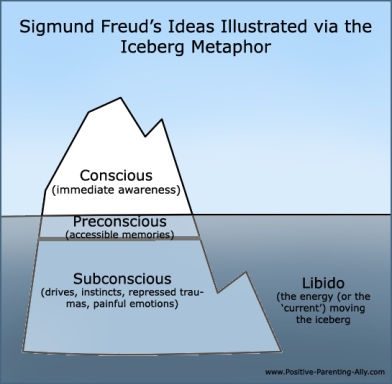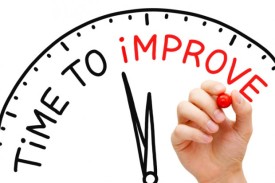Cinema and The Mirror
Film Theory
Hugo Münsterberg (1916) – Psychologist
- Parallel between the structure of the human mind and the filmic experience
- Only concern the conscious mind, not the unconscious
- Conscious experience of the spectator predominated in film theory
Psychoanalytic Film Theory
Jacque Lacan – Psychoanalyst
- The process of spectator identification understood through the idea of the mirror stage
- Mirror stage occurs in infants between six and eighteen months of age, when they misrecognize themselves while looking in the mirror.
- The infant sees its fragmentary body as a whole and identifies itself with this illusory unity
- This self-deception forms the basis for the development of the infant’s ego
- This idea for film theory is readily apparent if we can accept the analogy between Lacan’s infant and the cinematic spectator
Christian Metz, Jean-Louis Baudry – Psychoanalytic Film Theorists
- The film screen serves as a mirror through which the spectator can identify himself or herself as a coherent and omnipotent ego
- Spectatorship provides derives from the spectator’s primary identification with the camera itself
- Identification with the camera provides the spectator with an illusion of unmitigated power over the screen images
- The camera knows no limit: it goes everywhere, sees everyone, exposes everything
- The camera inaugurates a regime of visibility from which nothing escapes, this complete visibility allows spectators to believe themselves to be all-seeing
- It remains unconscious and the spectator sustains the sense of being unseen
- Once the camera itself becomes an obvious presence rather than an invisible structuring absence, the spectator loses the position of omnipotence along with the camera and becomes part of the cinematic event.
- Reality effect: events on the screen are really happening and not just the result of a filmic act of production
Louis Althusser (1970) – Marxist Philosopher
- Thinking about the political implication of the mirror stage
- Fundamental ideological deception: ideology hails concrete individuals as subjects, causing them to regard themselves mistakenly as the creative agents behind their experiences
Traditional narrative film: the process of ideological interpellation and control
Hollywood film: invites spectators to accept an illusory idea of their own power, and in doing so, it hides from spectators their actual passivity
Laura Mulvey (1975)
- Link psychoanalytic film theory to feminist concerns
- Link the process of spectator identification to sexual difference
- A secondary identification with character accompanies the spectator’s primary identification with the camera
Reference: Psychoanalysis, Cinema and The Mirror
Transnational Subjectivities (Lecture 4)
Shanghi Baby
 Bridget Jone’s Baby
Bridget Jone’s Baby
- Postfeminist (structure of feeling)
- Inspiration: Pride and Prejuice
Cultural Sentiment
- Disavowal of stereotype
- Feminism as bodily property
- Individualism and (consumer) choice
Biological Essentialism
- Return to traditional values → men and women are fundamentally different (the particular roles of women like take care baby and cooking)
- Heterosexist → reproduces ideals that are problematic for both men and women (body as a marker of success)
Human > Consumer
- Education, water, health etc. → commercialised
- Freedom, choice, empowerment > commodity
Intersectionality
- Empowered, postfeminist subjects vs. downtrodden victims of patriarchy
- #bring back our girls
Intersectional Analysis
- Multiple axis of differentiation
- Intersect in historically specific contexts
Problematizing Whiteness
- Whiteness as an “invisible” signifier → nameless
- Power reasserts itself in complex ways → racial hierarchies

Beyoncé – the icon of black postfeminist
What dose Beyoncé represent?
- The way that white people see black people
- The self-awareness of black people
How does Beyoncé self-representation challenge and reinforce postfeminist femininity?
- She uses her songs to show the power of women and to express that women can be part of the world, it is not all for men
Why is Beyoncé race made problematic?
- She is a black people from Africa but she tried hard to get into the America world and to integrate their culture, this make people very appreciate her braveness.
Cultural Intelligibility
- Recognition as a subject within symbolic
- draw on cultural norms and discourses to perform identity
- Means careful negotiation for non-white, non-Western, non-hetero, working class women
Transnational Postfeminism
- Cultural hegemony
- Shanghi Baby
Historical Context
- Open door policy: free trade, opening itself to the world → economic neoliberalism and socialism
- Changing gender relations → “feminism” as state policy, so different “post-feminism”
Screen Cultures and Selves (Lecture 4)
Presentation about morality
Each group had a presentation of an advertisement, which is immoral. We talked about why the advert is morally wrong and in what way it is wrong. We also discussed the image and its relationship with the previous topics covered in the lecture so far.
 We disagree with the group that talked about the advertisements of Coca-cola. Their
We disagree with the group that talked about the advertisements of Coca-cola. Their
argument is that the connotation of those image is oral sex. However, we think that everyone drink coke and no matter men or women, we all drink in the way that show in those advertisements, it is difficult for us to think of oral sex because it is just a coke. Maybe they just have this association because of today’s topic.
 Professional Presentation
Professional Presentation
- Do some reading and research before presentation
- Can quote some references
- State arguments
Research and Practice (Lecture 4)
Mobile Technology

Media Loan Shop
Steps: Book by category → MLS equipment → Choose equipment → Add to basket → Create booking → Select time (only loan for 24hrs, include weekend on Friday) → Terms and conditions → Verify booking → Submit
* Forward the email to Ady if you want to book longer than 24hrs

Mobile Apps
- Adobe: Premiere Clips/ Spark Post/ Spark Page/ Spark Video/ Photoshop
- Photo editing: Meitu
Video Montage
This video is about enterprising women and cultural hybridity. In the beginning, some Hong Kong girls are cosplaying. They dress up and makeup as different characters of Japanese anime. You can also see a British Youtuber who is turning herself to a famous character – Sailor Moon. Some of them treat online media as a marketplace to gain profit by delivering makeup tutorial. This shows the commodification of women. In the later part of this video, a man is searching for a wife online, then he travels from United States to Russia and get married with a mail order bride. All of these are the demonstration of cultural crossovers.
Exploring Digital Culture (Lesson 3)
Networked Affect

Affect and Embodiment
Turn to Affect
- Bring the body back into the picture
- body ofter reacts first
- There are limits to what “objectivity” and “representation” in research can account for
- Feminist
- Body is always in a world – the body is always experiencing something, always bringing our experiences and subjectivity to something → how we think about something and how we effected by something
- What we think → What we feel
Affection Reactions
- Touch → Experience → React
- Mind and body act against each other
Defining Affect
- Being affected is about being moved
- Visceral
- Bodily
- Automatic
- Reactive – creates a network
- Intense
- Forces that act upon us
- We act upon others
- Openness
- Participation
Linked to Emotion
- Beyond: emotion → making sense of feeling
- Before: feeling → emotion
- More than an emotion (Hillis 75)
How we Extend Outwards is also Affective
- How we extends outwards into tools and instruments
- Affect also looks at how we extend into our environments
Affective Environments
- Awkward – environment can be affective → you feel something wrong when you enter to a room which is full of people
Affective Connections
- When we go to night club and dance with others, we do not concern about our body
- When we see others laugh, we also laugh
- When we affected by something, our body is reacting to something
Self and Other
- Affect is a post-personal force exceeding the human. (Wetherell 2012: 59)
Social Networks
- Relationships of individuals – who is talking to whom, who is communicating with whom on a regular basis
Networked Affect
- We experience horror while we are playing zombie game
- Accumulating Affect – Like/comment on social media is our reaction
- We use emoji to express our reaction which is difficult to explain in words
- Experiencing affect in the physical world happens online too
Screen Cultures and Selves (Lesson 3)
Structuralism: about you, me and being human
Nature vs. Nurture
Nature: gene(DNA), appearance, physical, gender, talent
Nurture: being construct by others
Are we born with character, love, hate and morality? Or are we the products of family, environment, experience and education?
Are mass murderers born to be evil? Or they become evil because of something that happens to them?
Who are we? the mixture of nature and nurture
Basic instincts of a baby: breathing, eating, sleeping, crying, go to the toilet → these are our basic desire to survive
Elements of nurture: semiotics and myths (we have to learn and experience)
Morality: right and wrong things in a society
Jaques Lacan:
- The unconscious is structured like a language
- Claude Levi-Strauss (1908) is structuralist anthropological writing during the 1950’s
The unconscious mind: doing things that we cannot control
Anthropology: things that people have done and will continue to do → Why do we get married? Why do we do what we do?
Is it nature or nurture that people in remote area get married? If it is nurture, why do different people do the same?
myth of binary opposition → every cultures have good and bad

Claude Levi-Strauss:
- The Savage Mind
- Man obeys law that are inherent in the brain
- Myths are not made by individuals but by the collective human consciousness
- The savage mind had the same structures as the civilized mind
- The human is the same everywhere – in relation to the centralization of structure
- ‘Bricolage’ – the characteristic patterns of mythological thought
- Reuse available materials in order to solve new problems
The conscious mind is structure. The desire of structure is nature. We cannot understand the world without it.
Transnational Subjectivities (Lesson 3)
Enterprising Women
Dolls Makeup
- some women want to achieve the paint of dolls to be more attractive → but they do not look real → look like Barbie
- most of them come from Ukraine → borrow the idea from America and East Asia (Japan)
Cultural Hybridity
What are you wearing? Where was it produced? Who produced it?
- Most of our clothing, glasses, watch, scarf are from American/UK/European brands, but were made in some Asia countries, like China, Turkey, Indonesia, India, Thailand, etc.
What have you eaten? Where was it produced? Who produced it?
- We have eaten local UK food, American fast food and Chinese food, they were produced in UK or some countries in Europe.
What technology are you using? Where was it produced? Who produced it?
- Most of us are using smart phone and laptop from Apple and Samsung, which are the brands from America and Korea, but the products were produced in China.
Are there any patterns?
- Western design, Eastern manufacture
Neoliberalism and the Entrepreneurial Self
The room is her own office, where she creates fairytale beauty (Anastasiya Shpagina, 2012)
Neoliberal Economy
- Free trade → no trade barrier → all countries can export and import freely
- Labour is not equal in all countries
Shaping Subjectivity
- How we understand ourselves – subjectivity as economy
- Two-way process: culture and subjectivity (outside-in and inside-out)
Companies of One
- worked on ourselves as a project
- all about profile, profit, investments and payoffs
- “Shape-shifting portfolio person”
 Self Improvement
Self Improvement
- Expectations: always work on body and mind
- Self transformation → failure (e.g. consumer culture, self-help)
Entrepreneurs of the Self
- Active self + calculating self → better self
World of Work
Transnational Subjectivity
- Flexible: bring work back to home
- Precarious: low pay, creative labour, rebranded through the image of the worker, do what you love (interest → hobby → work)
- Aesthetic: represent who we are by consumption, gap between public and private → narrow who we are is also what we do
Colonialism – Hong Kong
 From 1841 to 1997, Hong Kong was a British colony and the colonialism has shaped our subjectivity a lot.
From 1841 to 1997, Hong Kong was a British colony and the colonialism has shaped our subjectivity a lot.
First, Hong Kong was only a small fishing port with less natural resources. Then, after the British colonizers came to Hong Kong, they developed it to become a transhipment port, which was the important step for Hong Kong to turn into a finance and business city, and to have a rapid economic development. Today, only less people in Hong Kong are still doing agriculture and fishing. Almost everyone wants to devote into the financial sector because we are subjected to believe that those who are in this sector are the upper class in this society, and it is the essential factor for the community to develop as well.
Second, besides Chinese, English is another official language in Hong Kong. We have to learn English since kindergarten, and for the official and legal documents, if there is some contradiction or ambiguity between English version and Chinese version, the English version shall prevail. English is also a compulsory subject in all of the primary and secondary schools, and in universities, we only taught in English. Although Hong Kong has returned to China from 1997, we only learn Mandarin in primary school, and we speak Cantonese and use traditional Chinese rather than Mandarin and Simplified Chinese. In addition, there are two types of secondary school in Hong Kong, which is English as Medium of Instruction School (EMI) and Chinese as Medium of Instruction School (CMI). For those students who can go into an EMI are seen as brilliant and more intelligent. If people who do not know English or not good at English, they are seen as uneducated, unskilled and uncompetitive. Today’s Hong Kong society generally more emphasis on English but not Chinese and we think that English can enhance our international competitiveness. This can show that how colonialism shaped our subjectivity powerfully.
Third, most of the Hong Kong people believe in Taoism, Buddhism or other Chinese folk religion before colonized. However, Christianity and Catholicism also become more common when Hong Kong become the British colony. This has made Hong Kong to be a city with high freedom of religion and beliefs. Apart from the above religions, Islam, Hinduism, Sikhism are also very familiar.
There are both advantages and disadvantages of being colonized. We can see that the city has better development and the competitiveness is increasing. Nevertheless, some of the traditional cultures may disappear or be replaced.
 Hong Kong as a international and multicultural city, all of the people in different race can have same education opportunity and can enjoy the same rights, we would respect their religion and custom as well. Because of the coexistence of Chinese and Western cultures, we accept both traditional Chinese values and universal Western values. Therefore, there is no boundary between Hong Kong people and the other.
Hong Kong as a international and multicultural city, all of the people in different race can have same education opportunity and can enjoy the same rights, we would respect their religion and custom as well. Because of the coexistence of Chinese and Western cultures, we accept both traditional Chinese values and universal Western values. Therefore, there is no boundary between Hong Kong people and the other.
